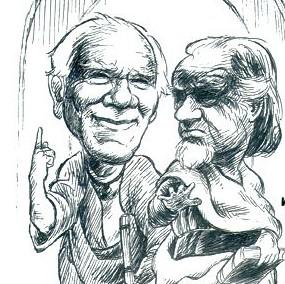
My first encounter with Francis Schaeffer was in the bathroom at a fundamentalist college. Inspecting the cleanliness of rooms on my hall one Saturday morning (a daily job that sophomore year), I came across a seditious-looking, oversized hardback, lying on the back of a bathroom toilet. In ridiculously large Courier font on the front cover of the white dust jacket it read WHATEVER HAPPENED TO THE HUMAN RACE.
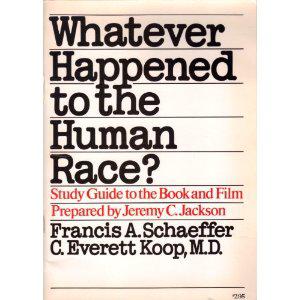
Feeling the aesthetic sensation that I was being shouted at, I picked up the book and turned it over. On the back were the pictures of interesting-looking characters (Amish versions of the founding fathers, I thought) I learned to be C. Everitt Koop, U.S, Surgeon General under Ronald Reagan and an intriguing character simply named Francis A. Schaeffer.
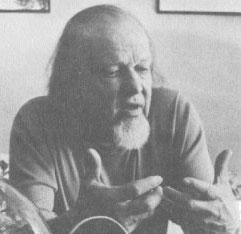
Not sure whether or not I would find history or nudity between its covers, I opened it to find the continuation of Courier font within its covers. I forgot about room inspections.
A theological argument that read like a Modern history book, I inquired of the owner to explain the meaning of it to me. In short order I left his room with a copy of an antiquated paperback by Schaeffer He is There and He Is Not Silent, spending the rest of that morning in my dorm room, lying on my back, trying to cipher his complicated arguments, tears streaming down my face.
Having read most of Schaeffer's written work (and many of his books several times), having watched his popular documentary series dozens of times, and having listened to the high-pitched whine of his voice on cassette lectures for literally hundreds of hours over the past twenty years, I have developed a basic familiarity with Francis Schaeffer's theological mindset and cultural perspective, albeit a basic one.

I later learned that the Calvinism I had been taught in Europe had been filtered through the influence of Francis Schaeffer and that some of his ideas for which I immediately felt a powerful affinity during my first readings were taught to me in the little village of Mehlingen, Germany. However, years later I have learned that I learned about Francis Schaeffer in a backwards fashion. While many people were light years ahead of me in How Should We Then Live (what I like to term "Commercial Schaeffer"), I wrestled with the abstraction of his thoughts before I ever knew about his documentary series How Should We Then Live. That has resulted in my own emphases on Schaeffer.
I am struck by how many times Schaeffer's name comes up among evangelicals and the politically conservative, a group largely influenced by a smattering of Schaeffer. Usually citing Schaeffer's political concerns in How Should We Then Live, I find discussion with many from these groups to be generic (the anti-Christian sentiment of American government) and short-lived ("Schaeffer was the greatest evangelical figure of the 20th century) as well disappointing. I have often wondered if we have been reading the same books.
Much of Schaeffer's legacy is his intellectual contribution to the anti-abortion movement and the consequent rallying together of the Moral Majority under his ideas. He is also know for the popular Schaefferism "All truth is God's truth" which has practically meant that playing John Lennon in church is allowable or that creating cheap, Christian facsimiles of "secular" originals is obligatory (I was recently in both a fundamentalist and a charismatic church, respectively, which parodied Schaeffer's ideology, complete with a coffee shop, skate park, and a Border's bookstore look-alike). Francis Schaeffer's name is a talisman, a relic, a stamp of approval for religious, political action. His ideas have not changed much in the almost 30 years since his passing.
Were Schaeffer present in 2011, I am sure he would have already re-framed or rebranded himself in light of the new dominant world spirit (Call it what you may. Just don't wrongly associate it with the Old Modernism). I would like to highlight a few ideas of Schaeffer's (in no particular order) that I think relevant to the POMO (aka, post-modern).
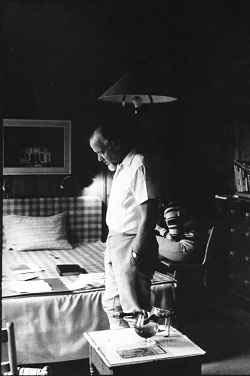
1. Schaeffer was not a professional theologian; Schaeffer was an evangelist. Each of his works are best understood with this truth in mind. While Schaeffer used a theological frame and ideas, he did not see his main contribution to the world to be a theological one. He saw his main contribution to be cultural, aka, conversational. Schaeffer created a language unique to describing the anomaly of "Modern man." That is one of the reasons Schaeffer's influence (pre-Religious Right) was widely influential in the hippie community as well as in the university (each an extreme of the "Evangelical" Schaeffer helped to shape).
Using orthodox, theological constructs, Schaeffer created new categories that culturally-specific and language-specific for the Modern. For example, Schaeffer describes Adam as an "unprogrammed man." Elsewhere he describes the distinction between existential and orthodox theological expressions to hinge upon whether or not that individual believes in "Adam's bones" (that belief in the Bible's Adam demanded a belief that the remains of his bones lay somewhere on or in the earth).
Schaeffer even uses Einstein's relativity language when he speaks of a literal creation "in space and time." To distinguish Adam as human without the modern capital of determinism, Schaeffer used the term "mannishness", the sum of all that it meant to be human.
Schaeffer did not just create language for ivory tower enjoyment. He sought to encapsulate the ideas of a scientific-infatuated culture in imagery that correlated to ancient Biblical truths but to represent them in as Modern a way as possible. In The Church at the End of the 20th century, Schaeffer explains the schizophrenia of the Modern's intellectual touting of an ideology the consequences of which he or she revolted against in areas of actual meaning. "Cage directed some of his own chance music and when it was over he thought he heard steam escaping from the steam pipes. Then he realized that the musicians were hissing... They were hissing because they did not like the results of their own teaching when they heard it in the medium to which they were sensitive. They were hissing themselves." (italics added)
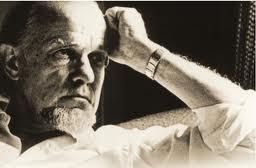
2. Schaeffer did not parrot the traditional expression of a harsh Calvinism, and this caused him problems with his mentors. One need only to read of Van Til's reprimanding Schaeffer's cultural approach to Modern man to understand that while Schaeffer borrowed heavily from the Calvinistic greats, he made a distinction between what he considered a Modern, Calvinistic view of determinism (variants on fatalism at least in expression) and the "dynamic equivalence" of a true freedom of the will.
Schaeffer makes it clear that God gave Adam the "unprogrammed man" an unprogrammed choice. The Old Calvinists flinched at this expression because they had no category to which they could popularly appeal save for the Modern concept of determinism: that man is "predestined" (read "determined") to "this" or "that."
In his book How Should We Then Live, Schaeffer uses the analogy of a ripples (as in ripples caused by a stone dropped into water). He says that the ripples are "real" and that these ripples move in ever-widening, concentric circles, referencing real causes and having real effects in the world around us. Schaeffer's emphasis on this latent Calvinistic view severed a great many relationships of his. For some, Schaeffer was seen to have crossed over to the very Aristotelians against which he was speaking.
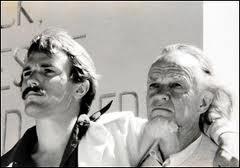
3. Schaeffer advocated a serious "earthy" consideration of matter versus the exclusive "Platonic" idealization of the mind and the soul. In Pollution and the Death of Man, Schaeffer explains a critical aspect of his theology upon which the development of his entire cultural conversation hinged, explaining a lot of the reasons behind his interest in and commendation of the study of pop culture and other contemporary interests deemed useless by most of his peers. Schaeffer calls this idea the "covenant of creation."
In this view Schaeffer says that all "covenants" (aka, relationships) are "fixed" because God entered into a relationship or a covenant with the "stuff' (actual matter) He created. In other words God swore to respect the material integrity of the things he created. Schaeffer uses the example of Moses and the burning Bush. God suspended the normal, relational combination of a bush (wood) + fire = smoke for a specific reason: God was relating to Moses on the basis of his humanity.
In other words, God, having created Moses as a man to aspire to reason, created an anomaly (a miracle) He designed would lure Moses to the burning bush because Moses as a man had the aspiration that a bush on fire would result in smoke and ash. Further, Schaeffer tells us that God kept the integrity of the bush and the fire because they were both recognizable to Moses as such.
We can go on further to say that when Moses threw down his staff in the pharaoh's palace and it turned into a snake that it was a miracle (because snakes are not wood). However, when Moses picked it back up, it became wood once more. Further yet, Moses' snake eats up the other magician's snakes when they performed the same miracle as Moses.
But there is no contradiction here either, because Moses' snake ate up the other staffs (snakes) which became wood once more. Though Schaeffer does not say it, I guarantee you that he would argue that Moses' staff was much larger after it "ate up" the magician's snakes. In this covenant of creation, Schaeffer was very careful to consider the minutest of details of the world around him as well as the details of historical events expressed through ideas.
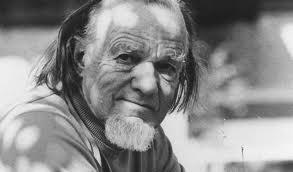
4. In all of Schaeffer's works, he gave us a model for how to communicate to a culture. His focus was not merely on facts. Schaeffer self-consciously lived in a transient world where things change, says he, because they are not the Infinite-Personal God Who does not change. So the more that the body of scientific knowledge grows, certain facts will "change."
This "Infinite-finite" distinction led Schaeffer to believe in the the fraternity of created things or matter. That is to say, Schaeffer believed that on the basis of ontology (the area of being) there is no qualitative differentiation of matter. On the basis of ontology you have the Infinite-Creator God and then everything else.
In other words, he really believed that on the basis of ontology man was related to every other created thing. However, as man being made in the image of God (at God's prerogative), Schaeffer believed that man was arbitrarily special and different than all other matter (Schaeffer calls the "arbitrary" will of God because God chose to do so because He wanted to do it and not because he Had to do it).
As touching man being made in the image of God, Schaeffer held no qualitative distinction between the genders, races, or even popular, modern cultural preferences like sexuality or religion. None whatsoever.
For example, in Schaeffer's Whatever Happened to the Human Race he clearly links the plight of the unborn child to the plight of the African-American slave. He speaks of how slavery and the sub-human view of race eventually morphed into the lawful extermination of unborn children of EVERY race. Actually, one of the last things for which he was remembered was his becoming the hired gun for and intellectual father of the anti-abortion movement.
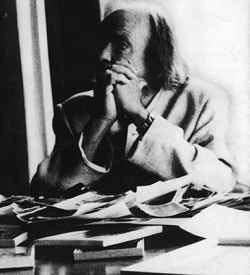
It has been almost thirty years since Schaeffer passed, and still there is no significant reinterpretation of Schaeffer's ideas to address the framework of our very own post-Cold War or post-modern era (or whatever you may wish to call it). What you often hear from the evangelical corner are the sound-bytes of Schaeffer largely leveled to bolster political interests. Schaeffer-loving is often times merely an addendum to the political resume.
I have the sneaking suspicion that, perhaps, many who use Schaeffer are probably a little confused about his fundamental ideas that long preceded the abortion issue. underlie his more commercialized ideas. No, we see all around us the same intransigent ideas that offer no new perspective, no enlightening perspective about the days in which we live.
I am certain that Schaeffer would, were he alive, empathize with the POMO, ciphering his hard core, gangsta rap, and world music, sobbing at the hopelessness of Indie films, walking the aisles of Bonnaroo chatting with drifters. I cannot imagine him ridiculing the documentaries of Michael Moore (not that he would necessarily agree with him), or encouraging the disparagement of Ellen Degeneres (not that he would necessarily agree with her).
He would have wept over the death of Kurt Cobain, rallied all Americans with steely resolve at 9/11, and been present at the inauguration of Obama. He would have taken time to fall asleep on the beach, babysit his grandchildren, and watch old reruns of The Cosby Show. He would have a smartphone (probably the iphone 4 and researching the iphone 5).
What is for certain is that he would not be lobbying in the ranks of the neo-cons, libertarians or progressives. He would not like his name being used as political endorsement. He probably would not be writing books and he probably would not be taking interviews. For all I know he might have retreated to the hills of Switzerland once more (if they would have him) in a quiet chalet, reading the Harry Potter series for the fifth time, savoring tea, or snoring in his rocking chair.
In only the way Schaeffer could, he would have created one hundred new conceptual amalgamations, one hundred new terms, and sixteen new perspectives about our current world that would allow us fresh enlightenment and even give us an edge on our ability to problem-solve new problems we don't yet recognize because we are in love with the old ones.
